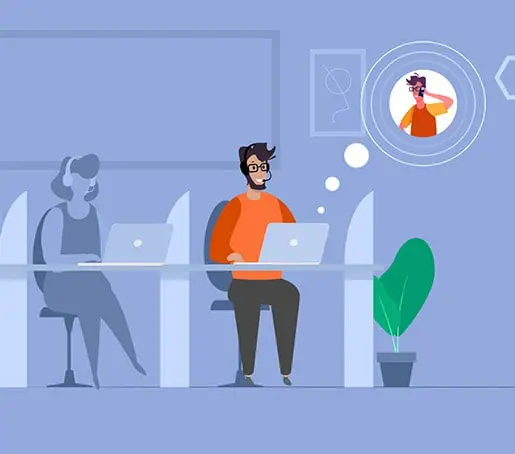
Artificial Intelligence (AI) is no longer a futuristic concept. It's already reshaping the workplace. From chatbots and automation tools to data-driven decision-making, AI is transforming how businesses operate and how we work. While this opens up exciting opportunities for innovation and efficiency, it raises important questions: will AI replace jobs in India? Or will it create new ones?
In countries like India, where a large part of the workforce is employed in IT services, retail and customer support, the impact of AI is already visible. Companies are adopting automation to scale operations and improve efficiencies.
As industries evolve, professionals must stay informed and adaptable. Understanding the impact of AI in different sectors, now and in the future, can help you future-proof your career, identify new growth areas and develop the right skills to stay relevant.
In this blog, we’ll break down the real impact of AI on jobs, the roles most likely to change and how you can prepare for the age of intelligent automation. Whether entering the workforce or considering a career pivot, you need to know this.
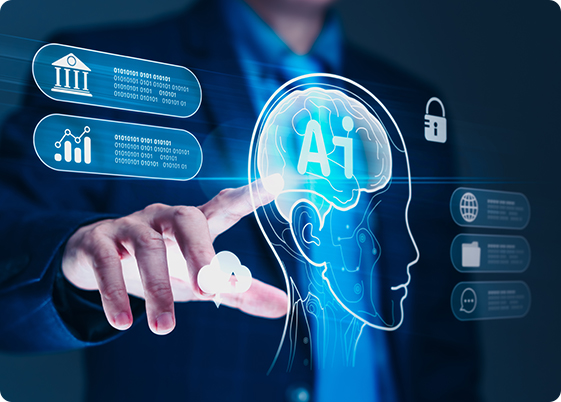
Understanding AI's Role in the Workforce
The rise of artificial intelligence in the workplace is transforming how teams operate, boosting efficiency and enabling more intelligent decision-making. Automated emails, chatbots, predictive analytics and other AI-based tools have become part of business operations.
AI also redefines jobs in the industrial sector as it determines what people and machines ought to do. This brings opportunity and disruption, and the professionals are challenged to review their skills and adjust to the changes.
Whether you are an expert in your field or are just beginning your professional career, the effect of jobs impacted by AI is a significant aspect that will allow you to remain competitive.
How AI is Changing the Job Market?
From automating repetitive tasks to powering smarter business decisions, AI is streamlining operations and reshaping workforce needs. Roles that once relied on manual processes are evolving, while new job categories are emerging in fields like machine learning, data science and AI ethics.
This shift affects not only tech professionals but also customer service, healthcare, finance, logistics and more. As businesses adopt AI-driven solutions, employees must adapt by reskilling and embracing new technologies. Understanding how AI influences hiring trends, skill requirements and workplace dynamics is key to staying relevant in this changing landscape.
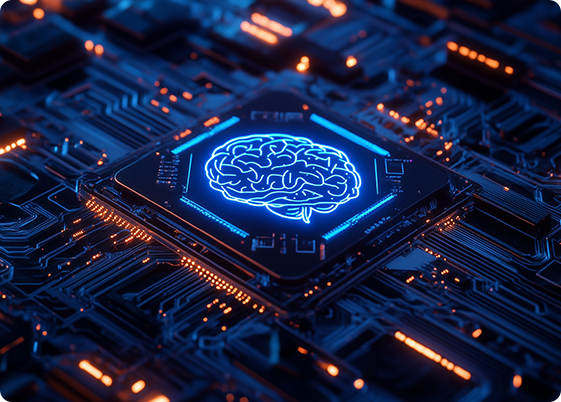
1. Job Displacement: The Reality of AI Integration
One of the most common concerns about artificial intelligence is job displacement. Repetitive, rule-based tasks in manufacturing, data entry and basic customer service are being automated.
Telemarketers, cashiers and even some entry-level analysts are among the jobs that are at risk as AI capabilities advance. However, displacement does not mean disappearance, it simply means transformation. Companies are reconfiguring roles, not eliminating them.
2. Job Creation: New Opportunities in the AI Era
Some roles disappear, while others appear. New professionals such as AI Ethics Officer, Machine Learning Engineer and Prompt Engineer are currently required.nto a new field. It’s one of the most underused yet practical career transition tips.
AI creates job opportunities in data science, cybersecurity, customer experience and robotics. Most occupations influenced by AI are becoming more complex and human-centred. Businesses will need people who can maintain, explain and extract the most value from AI systems, not just build them.
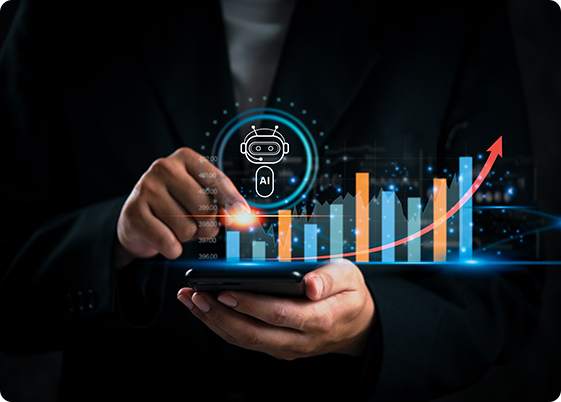
3. Adapting to the AI-Driven Job Market
To survive, job seekers should adopt the idea of adaptability. That implies learning how to work with AI and having a growth mindset. Understanding how automation will improve your job may make you smartly switch directions. Upskilling and reskilling are no longer nice-to-have options, but they are now survival tools in the contemporary work environment.
How AI is Transforming Various Industries
AI is transforming many industries because it can simplify processes, predict outcomes and improve accuracy. Here’s how AI is impacting different sectors:
- AI is used in healthcare for robotic surgery, drug discovery and diagnostics.
- Finance, for algorithmic trading, credit risk analysis and fraud detection.
- Retail, for inventory management, personalised marketing and chatbots.
- Automation in manufacturing, including predictive maintenance and assembly lines.
- Customer service, as AI chatbots and virtual agents reduce response times (AI in customer service)
- IT Sector, as DevOps automation, security protocols and cloud optimisation
Each transformation opens doors to new skills and redefined roles, making it essential to stay updated with AI trends.
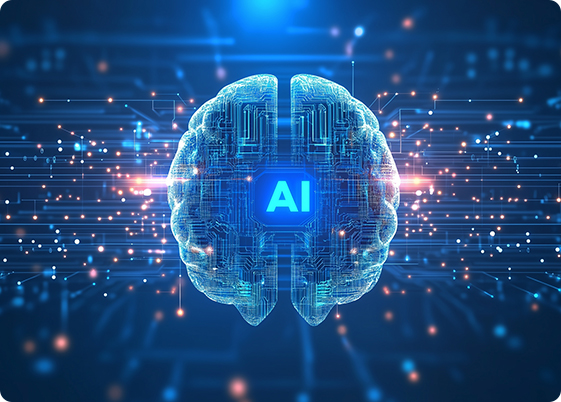
The Future of Work in an AI World
AI will augment rather than replace the future workplace. Humans will focus on imaginative, emotional and high-level strategic work areas, while AI will handle routine and information-intensive tasks. AI and the future of jobs point toward hybrid roles, remote AI-assisted workflows and cross-disciplinary functions. Tools like generative AI will help employees brainstorm, draft and refine ideas faster. Read about: What is generative AI?
AI and the future of work will increasingly rely on human-AI collaboration, making collaboration with technology an essential skill.
Upskilling and Reskilling for an AI-Powered Future
And if you are concerned that an AI will replace you, the solution is simple: learn how to collaborate. Here's how:
- Data Literacy.
- Introduction to AI
- Digital Communication
- Human Skills
- AI Tools
- Introduction to ChatGPT, Midjourney and automation platforms
Invest in skills to future-proof your AI. AI can also future-proof your thinking, preparing you to adapt, lead and innovate in an AI-powered world.
AI's Role in Enhancing Human Productivity
One of the most overlooked implications of AI in the workplace is that it can boost, rather than replace, human productivity. By reducing time spent on routine or low-impact activities, AI tools allow employees to be more creative, strategic and collaborative.
For example, AI could automate customer enquiries, generate reports, transcribe meetings, or make real-time recommendations. This would allow workers to become more adaptable, receptive and creative. AI can unlock human potential rather than suppress it, as it is currently used.
Addressing the Ethical and Social Concerns of AI in Work
Along with AI's advantages, there are serious ethical concerns. Organisations should think carefully about the implementation process when using biased algorithms for job displacement. Concerns such as increasing the transparency of AI decisions, ensuring data privacy and improving recruitment algorithm fairness are high priorities. Furthermore, businesses should openly discuss implementing AI and how it affects operations with employees.
Ethical AI practices should complement upskilling to avoid a social backlash and foster trust. Responsibility and inclusion must be balanced with the use of AI in workplace scenarios.
Conclusion
Rather than being afraid of AI, understand how to use it. Develop technical and soft skills that AI will struggle to replicate. Always remain open-minded and curious about the next thing. AI skills for the future are transforming industries through process automation or increased creativity.
Whether new to the workforce, changing careers or managing a team, now is the best time to future-proof your skill set. Explore IT sector jobs that involve working with cutting-edge technology and artificial intelligence to stay competitive in a changing job market.
At HGS India, we believe in empowering professionals to adapt to AI-driven transformations through learning, upskilling and innovative solutions that blend human expertise with AI technologies.
Frequently Asked Questions (FAQs)
Which industries are most affected by AI?
Significant AI-driven changes are occurring in manufacturing, retail, finance, customer service and healthcare.
How does AI affect entry-level jobs?
AI tends to automate routine tasks, resulting in role changes. Entry-level jobs increasingly require technological awareness, analytical skills or support capabilities.
What role will AI play in remote work trends?
AI enhances productivity tools, automates processes, and improves communication, making remote and hybrid work models more efficient.
How can companies balance AI adoption with human employment?
By investing in reskilling, redesigning roles and fostering human-AI collaboration instead of outright replacement.
 India
India Canada
Canada Colombia
Colombia Jamaica
Jamaica Philippines
Philippines UK
UK US
US SA
SA



